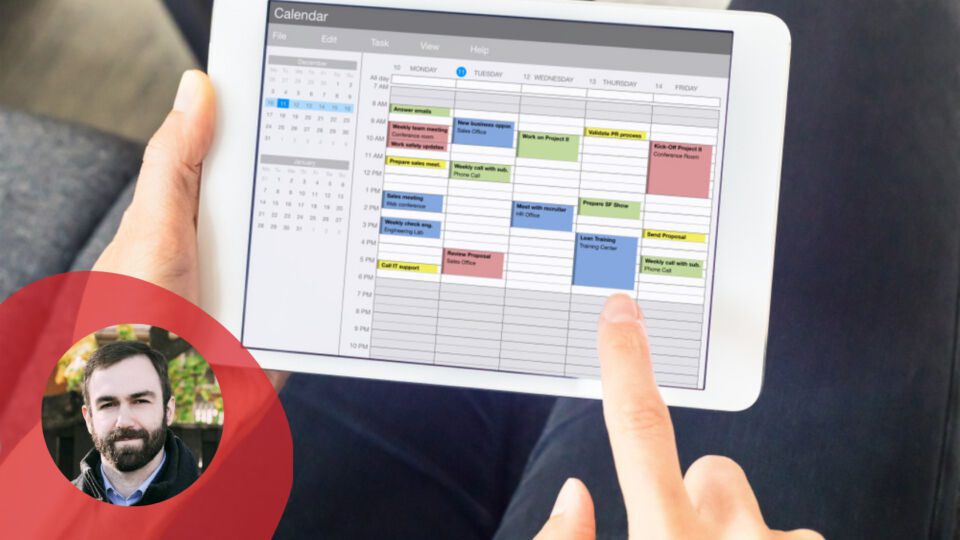With the growing trend of online shopping over the last year, many people are questioning how the retail industry can survive going forward. However, despite this apparent shift, the demand is undoubtedly there to return to stores, even if on different terms than what we knew before the pandemic — 62% of consumers said that scheduling a time to shop in person could inspire them to return to a store physically.
Scheduling technology will be crucial to satisfy the needs of consumers, and retailers that fail to provide their staff with effective solutions could lose out on opportunities for in-store engagement, customer insight and positive customer service ratings. Ultimately, this could lead to a deteriorated brand image, forcing consumers to look elsewhere.
Let’s look at some of the main advantages of scheduling technology, which should persuade retailers to avoid these adverse outcomes.
- Advancing a hybrid shopping experience.
Both those wanting a highly efficient shopping experience or just the ability to show up will benefit from a hybrid system. This is the most logical method of implementing scheduling technology, and companies such as Apple already operate in this way. This is partly why the tech giant has boomed so massively during the pandemic, reaching $2 trillion in market capitalization in August 2020.
Scheduling technologies enable these hybrid systems, allowing customers to browse an online catalog at home, make a mobile purchase while out on a walk, and book a pickup time at their ideal store location to avoid long queues. Online booking provides customers with fast, easy-to-use, convenient ways to connect with the brand from anywhere.
- More touch points between the retailer and the consumer.
Customer service and support are an integral part of the in-store experience. Given the unpredictability of customer needs on any given day, combined with the diversity and complexity of these issues, serving the customer right can then often be overwhelming for retailers. An appointment scheduling solution allows each store to organize and prioritize customers with more time-sensitive service issues and successfully manage customer expectations around wait times.
For more prominent brands with several outlets, customers can easily set appointments at a nearby store location, select a preferred day and time and share more details on their specific needs. Suppose communication from the retailer comes from an email, a text message or a phone call. In that case, it’s another touch point opportunity to remind a customer of an upcoming sale or remind them of their previous purchases. Ultimately, this represents an opt-in method to communicate with audiences more often.
- The anticipation of future traffic patterns.
As a result of increased touch points, retailers and their employees have advance knowledge that will help them serve customers better when they arrive at the store. They can display estimated wait times, updated in real time on the website, allowing customers to understand the potential impact on their day before choosing which location to visit.
Managers and employees can also have access to the full appointment queue and corresponding wait times. This allows them to manage workloads better, prepare for traffic spikes and provide the resources needed to facilitate all types of appointments, such as device repairs.
- Stores become safer and more comfortable shopping environments.
Stores are already putting in measures to create safe spaces by offering masks and sanitization stations and placing stickers throughout the store to maintain social distancing. With appointment booking, they can increase safety by mitigating overcrowding and expand the aisles with designated time allotments. Customers can then enter the store with ease, knowing that they can have a contactless shopping experience.
- Additional services and skipping lines.
In conjunction with scheduling an appointment, customers could also have the option to select specific services. Businesses can drive awareness for these services by advertising them alongside the booking option. Retailers also can think about offering scheduling to give the impression of exclusivity to their customers. For example, if they have signed up to be part of a “superstar club,” their booking allows them to skip the queue and walk straight into the store.
Scheduling technology can provide a huge boost to the retail industry by improving customer interaction and promoting various services, all under the premise of a “store of the future” where the shopping experience is safe and comfortable.
Brandon Aubie is the CEO and Co-Founder of QReserve. He has extensive experience deploying and building resource scheduling and management solutions by having worked with hundreds of organizations, from multinational pharmaceutical companies and universities to property management companies.




